外研版高一英语必修二 Module 3 Music Grammar时间状语从句和过去完成时 课件(共53张PPT)
文档属性
| 名称 | 外研版高一英语必修二 Module 3 Music Grammar时间状语从句和过去完成时 课件(共53张PPT) |
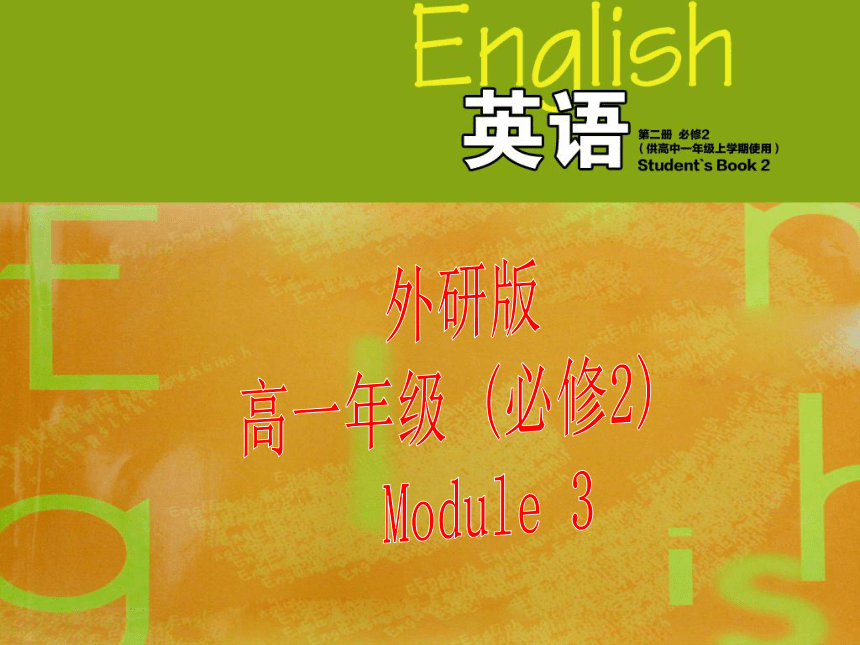
|
|
| 格式 | zip | ||
| 文件大小 | 5.1MB | ||
| 资源类型 | 教案 | ||
| 版本资源 | 外研版 | ||
| 科目 | 英语 | ||
| 更新时间 | 2019-01-21 00:00:00 | ||
图片预览

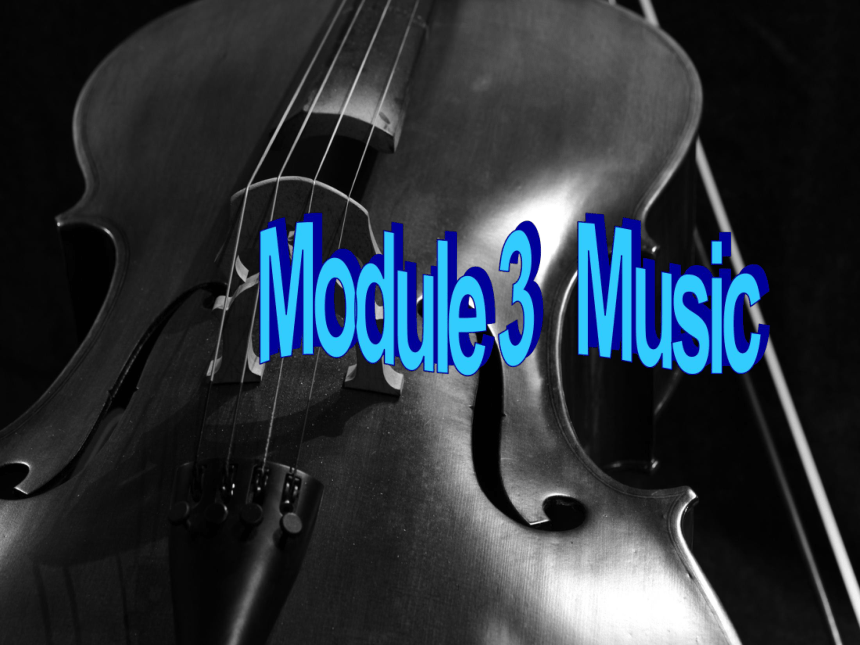
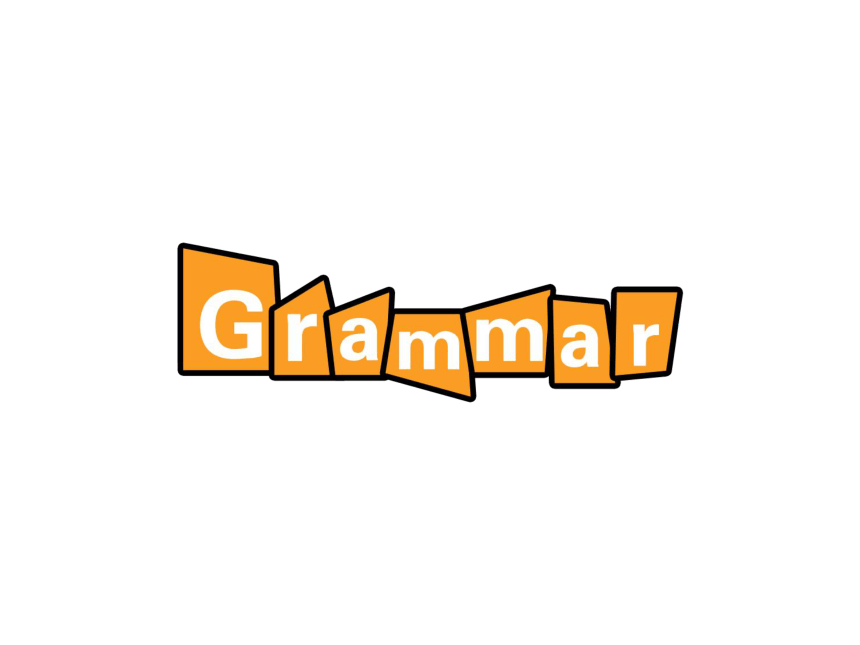
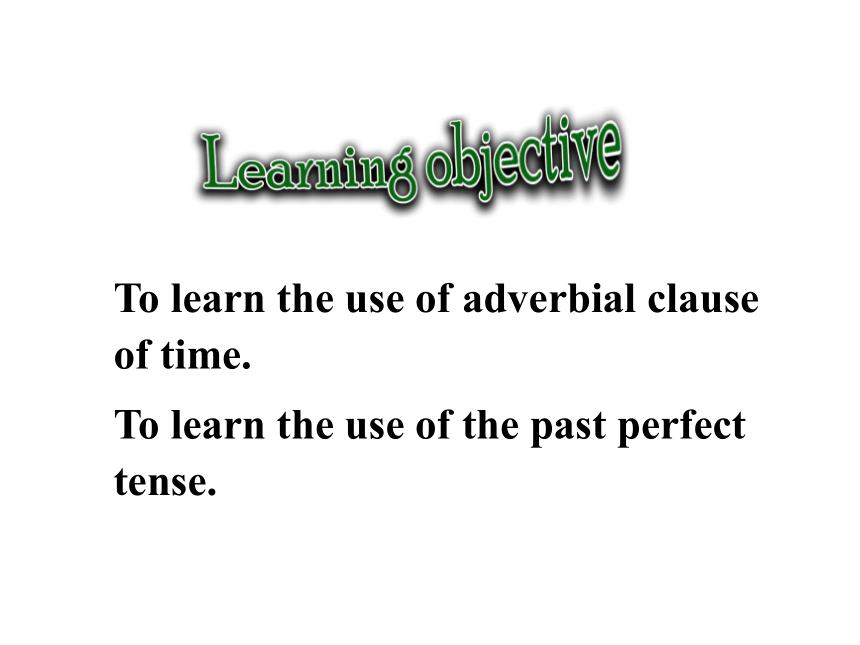
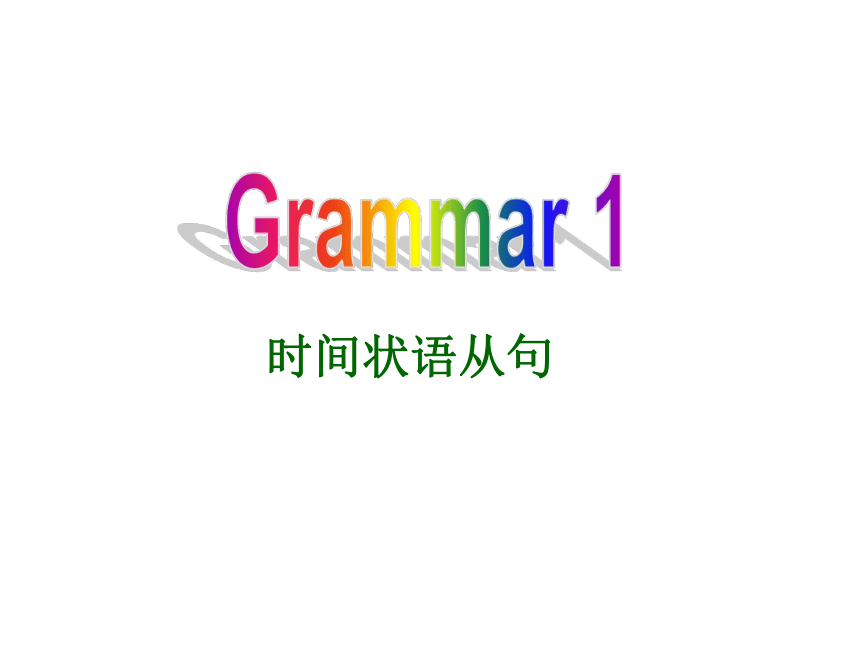
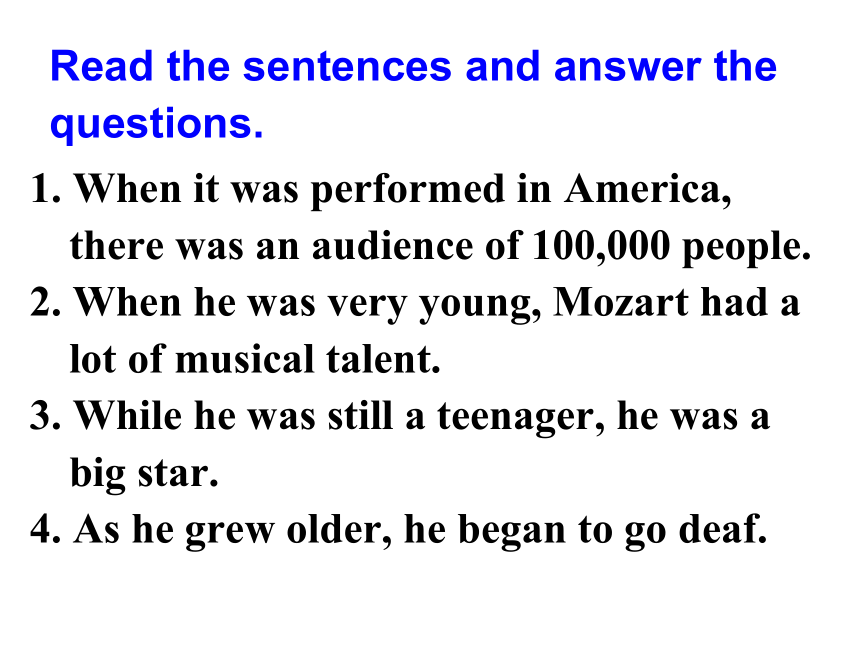
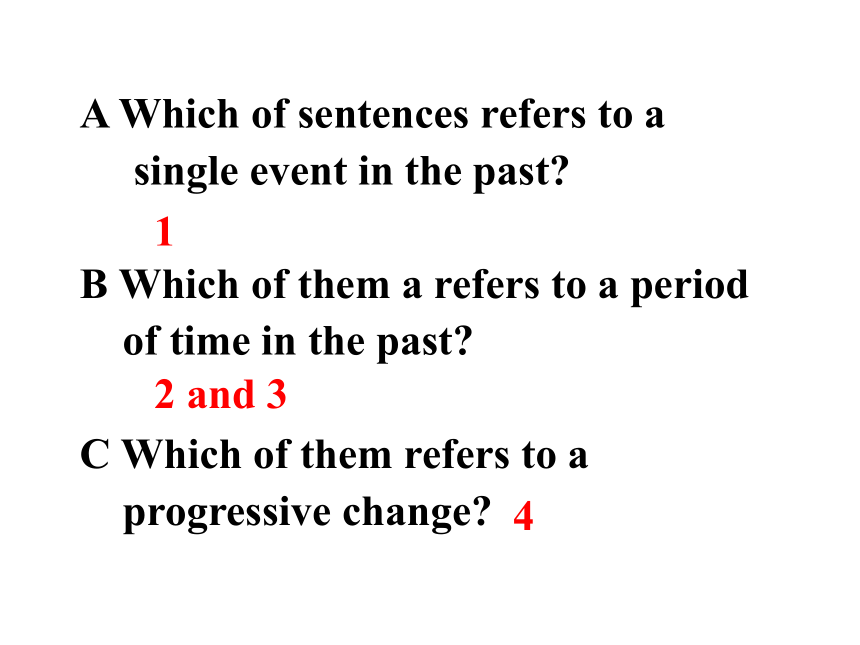
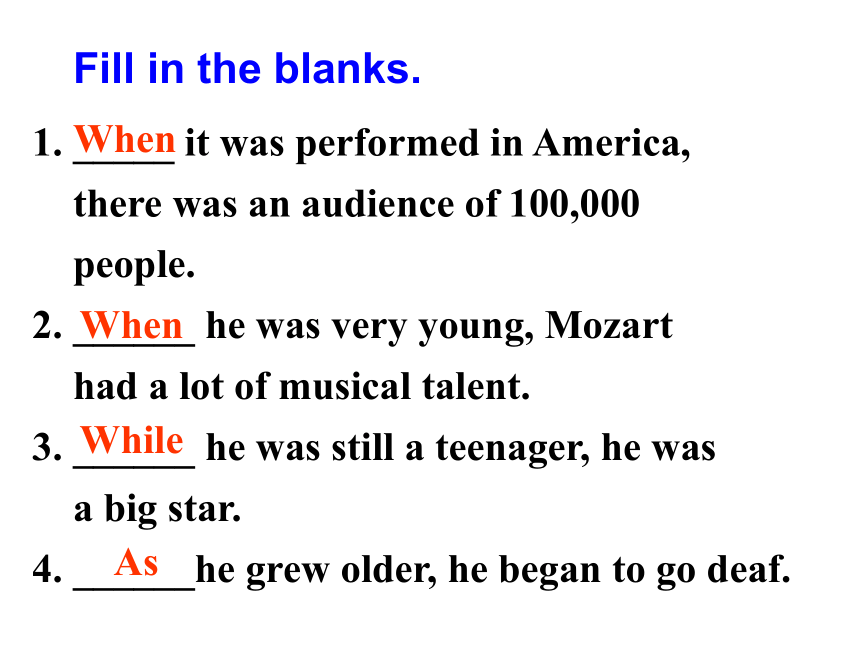
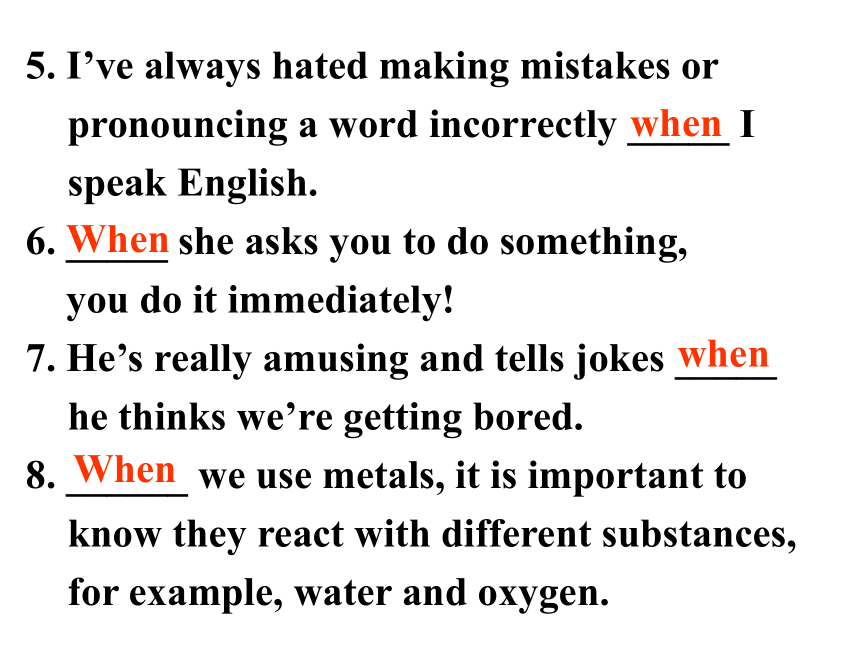
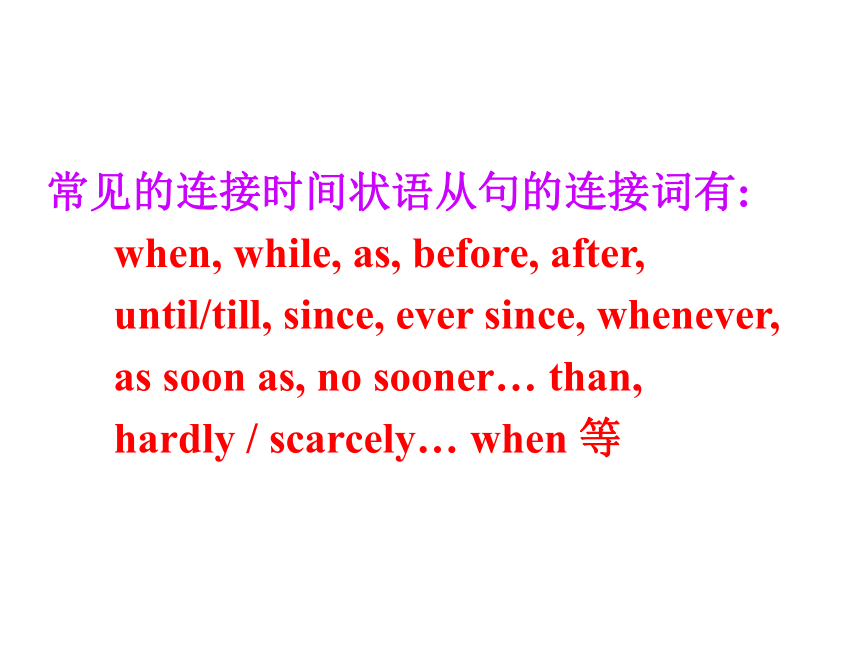
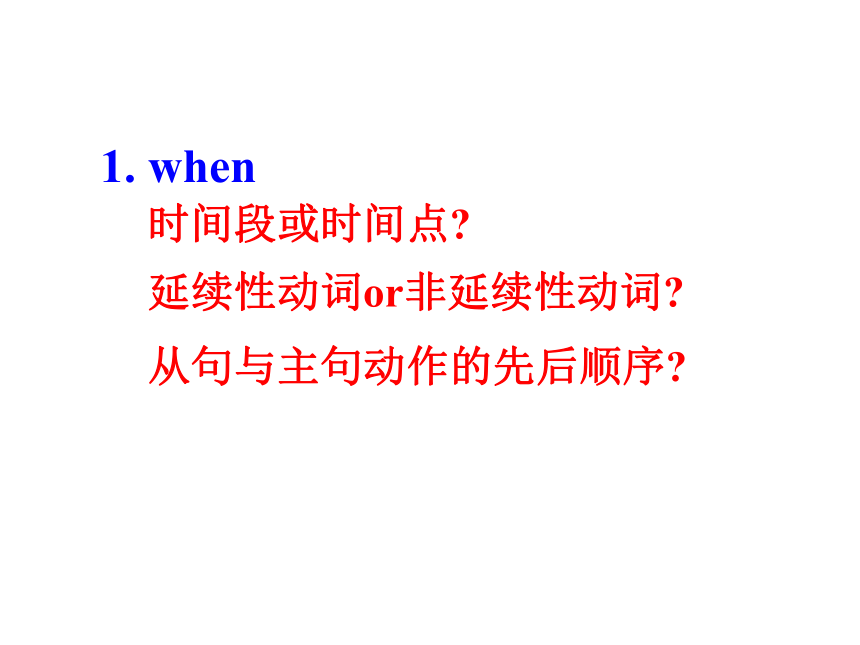
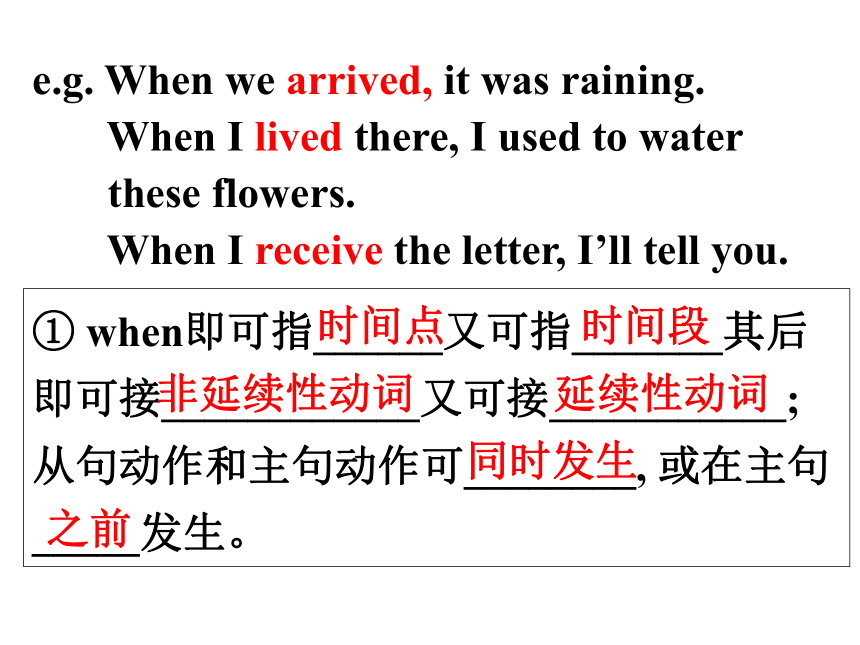
文档简介
课件53张PPT。外研版
高一年级 (必修2)
Module 3Module 3 Music To learn the use of adverbial clause of time.
To learn the use of the past perfect tense.Grammar 1时间状语从句Read the sentences and answer the questions. 1. When it was performed in America, there was an audience of 100,000 people.
2. When he was very young, Mozart had a lot of musical talent.
3. While he was still a teenager, he was a big star.
4. As he grew older, he began to go deaf.A Which of sentences refers to a
single event in the past?
B Which of them a refers to a period
of time in the past?
C Which of them refers to a
progressive change?12 and 341. _____ it was performed in America,
there was an audience of 100,000
people.
2. ______ he was very young, Mozart
had a lot of musical talent.
3. ______ he was still a teenager, he was
a big star.
4. ______he grew older, he began to go deaf.WhenWhenWhileAsFill in the blanks.5. I’ve always hated making mistakes or pronouncing a word incorrectly _____ I speak English.
6. _____ she asks you to do something,
you do it immediately!
7. He’s really amusing and tells jokes _____ he thinks we’re getting bored.
8. ______ we use metals, it is important to know they react with different substances, for example, water and oxygen. whenWhenwhenWhenwhen, while, as, before, after, until/till, since, ever since, whenever, as soon as, no sooner… than,
hardly / scarcely… when 等常见的连接时间状语从句的连接词有:1. when时间段或时间点?延续性动词or非延续性动词?从句与主句动作的先后顺序?① when即可指______又可指_______其后即可接____________又可接___________;从句动作和主句动作可________, 或在主句_____发生。时间段时间点延续性动词非延续性动词同时发生之前e.g. When we arrived, it was raining.
When I lived there, I used to water
these flowers.
When I receive the letter, I’ll tell you.⑴ be doing sth. when……
某人正在做 ……突然 ……
⑵
某人正要做 ……突然 ……
⑶ Sb. had just done sth. when……
某人刚刚干了……这时……② when也常用于下列句型:be on the point of doing sth.When…be about to do sth. when…e.g. We were swimming in the lake
when the storm started.
He was about to leave when the
telephone rang.
I had just made the mistake when
the teacher came in.2. while时间段或时间点?延续性动词or非延续性动词?从句与主句动作的先后顺序?e.g. While they were doing homework,
someone broke into the house.
While he was still a teenager, he was
a big star.① while即指的是_______; 其后只可接__________; 从句和主句动作______发生。时间段延续性动词同时② while还可作并列连词,意为“而,然而”e.g. I like playing Pipa while he likes
playing the violin.③ while还可引导让步状语从句, 意为“虽然,尽管”。e.g. While he is on a diet, he still likes
sweets.④ When/while引导时间状语从句,如
果主从句主语相同,且从句含有be
动词,则从句中可以省略主语和be
动词。e.g. When/While he was walking in the street, he
met Tim. When/while walking in the street, he met Tim.Walking in the street, he met Tom.强调两个动作同时进行两种情况一起发展变化试观察:
1) As they were picking tea, the girls were singing happily.2) As he grew older, he found it difficult to compose good music.3. as分析: as引导的从句表示“当……时;一边……一边……”,主句和从句的动作同时发生,强调伴随。有时可译为“随着”。4. 时间状语从句可以转换成分词短语。如:
Boys need to develop their bodies fully before they attempt such difficult exercise.
Boys need to develop their bodies fully before attempting such difficult exercise.After he worked there for 30
years, Haydn moved to London.
Note:
时间状语从句转换成分词短语时, 时
间状语从句的主语和主句主语必须
一致才可以。 Having worked there for 30 years,
Haydn moved to London. 1) 他从学校回来时,他妈妈正在烧饭。
2) 他一边烧饭一边唱歌。
3) 我们正要动身,这时天突然下雨了。
4) 你喜欢踢足球而我喜欢弹钢琴。
5) 随着时间的推移,我们都渐渐长大了。Translate these sentences into English.Possible answers:1) When he returned from school, his mother was cooking.
2) As he cooked, he sang.
3) We were about to start when it began to rain.
4) You like playing football while I like
playing the piano.
5) As time went by, we all grew up.Grammar 2 过去完成时After they had become stars in their own country, the Beatles toured the United States.
2. Before they visited India, they had recorded seven albums.
3. Other composers had written symphonies before Haydn, but he changed the symphony into a long piece for a large orchestra.Read the sentences.4. By the time he was 14, Mozart had composed many pieces for the harpsichord…
5. After they had known each other for many years, Beethoven said, “He is a good composer, but he has taught me nothing.”
6. We hadn’t seen each other since I left my
hometown.
7. They hadn’t finished their work when I arrived at the office.
8. By the late 1960s, their music had changed completely. 1) After they ___________ stars in their own country, the Beatles toured the United States.
2) Before they visited India, they ___________ seven albums.
3) Other composers __________ symphonies before Haydn, but he changed the symphony into a long piece for a large orchestra.
4) By the time he was 14, Mozart ____________ many pieces for the
harpsichord…had becomehad recordedhad writtenhad composedFill in the blanks.5) After they _________ each other for many years, Beethoven said, “He is a good composer, but he has taught me
nothing.”
6) We __________ each other since I left my hometown.
7) They _____________ their work when I
arrived at the office.
8) By the late 1960s, their music ___________ completely. hadn’t seenhadn’t finishedhad changedhad knownpresenttoured the United States
had become starspast 1past 2past perfect tense past simple tense 1. After they had become stars in their own
country, the Beatles toured the United States.Which happened first------had become stars or toured the United States? 过去完成时主要用来表示在过去之前发生的事或者动作,即“过去的过去”,通常有一般过去时作为参照presentvisited India
had recorded seven albumspast 1past 2past perfect tense past simple tense 2. Before they visited India, they had recorded
seven albums.Which happened first------visited India or had recorded seven albums? 3. By the time she announced her retirement, she
had played in a professional tournament for 15
years.过去完成时表示在过去某一时间之前已经开始并持续到
那时的动作或状态。had played for 15 years pastpresentpastWhich lasted for a period of time------announced her retirement or had played for 15 years? announced过去完成时的构成:
“助动词had+过去分词”
e.g. The public wondered why the
president hadn’t attended the top
conference.过去完成时的用法:
1) 过去完成时主要用来表明在某个时
间或动作之前已经发生的动作, 它
表示时间是“过去的过去”。如:The patient had died when the doctor
arrived.
Up until then they had just finished
half the work.
He had pressed the button before we
could stop him.
When I had finished my everyday
work, I did some gardening.6:00 (eat up) 7:00 (get up) presentLast Sunday, I had an unlucky day.
By the time I _______, my dog ________ up all my breakfast on the table.got up had eaten An Unlucky Day Practice 19:159:35 presentThen I went to see the film with empty stomach. When I _______ at the cinema, the film ___________ (be) on for 20 minutes.arrived had been arrivebe on After the film, I went to meet a friend whom
I ___________ (not see) since we _________. had not seen graduate not seegraduatedWe had coffee and talked happily. But when I was going to pay for it, I __________ (find) my wallet and cell phone _____________ (steal). What an unlucky day ! had been stolenfoundPassive voice:had (not) +been +done过去完成时与一般过去时的区别过去完成时:在时间上强调“过去的过去”
一般过去时:只强调过去某一特定的时间
They had arrived home by ten yesterday.
他们昨天10点之前到家。
(“到家”发生在昨天10点之前。)
They arrived home at ten yesterday.
他们昨天10点到家。 过去完成时用于一些固定句型1) It/That was+ the first/ second…+ time+ that从句,从句谓语常用过去完成时。It was the first time that I had visited the Great Wall.
这是我第一次参观长城。2) It was+一段时间+since从句,从句谓语用过去完成时。It was three years since he had joined the army.
他参军三年了。3) Hardly/Scarcely…when…,主句常用过去完成时态。Hardly had he got into his big office when the telephone rang.
他刚进入他的大办公室,电话铃响了。 4) No sooner…than…,主句常用过去完成时。No sooner had he arrived than he was asked to leave again.
他刚到就被要求离开。In the 1950s in the USA, most families had just one phone at home, and wireless phones _________________ (invent) yet. hadn’t been invented复习时间状语从句。
Adverbial clause of time
复习过去完成时。
The past perfect tenseI. 用括号内动词的正确形式填空。
1. We ___________ (finish) the work by nine o’clock yesterday.
2. She realized she ________ (make) a mistake.
3. By July last year, she __________ (study) here for 3 years.
4. The meeting __________ (start) when we arrived at the hall.had finishedhad madehad studiedhad started5. Mary told me she _________ (read) the book before.
6. She told me she __________ (work) in a small town since she graduated from college.had readhad worked 1. She had sung a song to us before she danced. (改否定句)
2. They began to climb the mountain after they had bought all the food and drink. (改否定句)
II.句型转换。She hadn’t sung a song to us before she danced.They didn’t begin to climb the mountain after they had bought all the food and drink.3. I had sold the ticket when she came.
(改否定句)
4. By 10:00 a.m., I had been very hungry.
(改一般疑问句)
5. Lucy had already completed the project
when I arrived. (改一般疑问句)
I hadn’t sold the ticket when she came.Had you been very hungry by 10:00 a.m.?Had Lucy already completed the project
when you arrived?6. By the time he got to the airport, the plane had taken off. (改一般疑问句)
7. He had broken his arm when I saw him. (对划线部分提问)
8. When he had read the note, he ate it. (对划线部分提问)
Had the plane taken off by the time he got to the airport?What had he done when you saw him?What did he do with it when he had read the note?Ⅲ. 翻译下面句子。
1. 迈克到那时火车已经开了。
2. 戴维说他前一天已经去看过她。When Mike got there, the train had already left.
David said he had gone to see her the day before.3. 随着年龄的增长,她变得越来越成功了。
4. 到2017年底他们已经完成了那个项目。As she grew older, she became more and more successful.
They had completed the project by the end of 2017.1. Review Grammar.
2. Finish the exercises 3 and 4 on page 27.
高一年级 (必修2)
Module 3Module 3 Music To learn the use of adverbial clause of time.
To learn the use of the past perfect tense.Grammar 1时间状语从句Read the sentences and answer the questions. 1. When it was performed in America, there was an audience of 100,000 people.
2. When he was very young, Mozart had a lot of musical talent.
3. While he was still a teenager, he was a big star.
4. As he grew older, he began to go deaf.A Which of sentences refers to a
single event in the past?
B Which of them a refers to a period
of time in the past?
C Which of them refers to a
progressive change?12 and 341. _____ it was performed in America,
there was an audience of 100,000
people.
2. ______ he was very young, Mozart
had a lot of musical talent.
3. ______ he was still a teenager, he was
a big star.
4. ______he grew older, he began to go deaf.WhenWhenWhileAsFill in the blanks.5. I’ve always hated making mistakes or pronouncing a word incorrectly _____ I speak English.
6. _____ she asks you to do something,
you do it immediately!
7. He’s really amusing and tells jokes _____ he thinks we’re getting bored.
8. ______ we use metals, it is important to know they react with different substances, for example, water and oxygen. whenWhenwhenWhenwhen, while, as, before, after, until/till, since, ever since, whenever, as soon as, no sooner… than,
hardly / scarcely… when 等常见的连接时间状语从句的连接词有:1. when时间段或时间点?延续性动词or非延续性动词?从句与主句动作的先后顺序?① when即可指______又可指_______其后即可接____________又可接___________;从句动作和主句动作可________, 或在主句_____发生。时间段时间点延续性动词非延续性动词同时发生之前e.g. When we arrived, it was raining.
When I lived there, I used to water
these flowers.
When I receive the letter, I’ll tell you.⑴ be doing sth. when……
某人正在做 ……突然 ……
⑵
某人正要做 ……突然 ……
⑶ Sb. had just done sth. when……
某人刚刚干了……这时……② when也常用于下列句型:be on the point of doing sth.When…be about to do sth. when…e.g. We were swimming in the lake
when the storm started.
He was about to leave when the
telephone rang.
I had just made the mistake when
the teacher came in.2. while时间段或时间点?延续性动词or非延续性动词?从句与主句动作的先后顺序?e.g. While they were doing homework,
someone broke into the house.
While he was still a teenager, he was
a big star.① while即指的是_______; 其后只可接__________; 从句和主句动作______发生。时间段延续性动词同时② while还可作并列连词,意为“而,然而”e.g. I like playing Pipa while he likes
playing the violin.③ while还可引导让步状语从句, 意为“虽然,尽管”。e.g. While he is on a diet, he still likes
sweets.④ When/while引导时间状语从句,如
果主从句主语相同,且从句含有be
动词,则从句中可以省略主语和be
动词。e.g. When/While he was walking in the street, he
met Tim. When/while walking in the street, he met Tim.Walking in the street, he met Tom.强调两个动作同时进行两种情况一起发展变化试观察:
1) As they were picking tea, the girls were singing happily.2) As he grew older, he found it difficult to compose good music.3. as分析: as引导的从句表示“当……时;一边……一边……”,主句和从句的动作同时发生,强调伴随。有时可译为“随着”。4. 时间状语从句可以转换成分词短语。如:
Boys need to develop their bodies fully before they attempt such difficult exercise.
Boys need to develop their bodies fully before attempting such difficult exercise.After he worked there for 30
years, Haydn moved to London.
Note:
时间状语从句转换成分词短语时, 时
间状语从句的主语和主句主语必须
一致才可以。 Having worked there for 30 years,
Haydn moved to London. 1) 他从学校回来时,他妈妈正在烧饭。
2) 他一边烧饭一边唱歌。
3) 我们正要动身,这时天突然下雨了。
4) 你喜欢踢足球而我喜欢弹钢琴。
5) 随着时间的推移,我们都渐渐长大了。Translate these sentences into English.Possible answers:1) When he returned from school, his mother was cooking.
2) As he cooked, he sang.
3) We were about to start when it began to rain.
4) You like playing football while I like
playing the piano.
5) As time went by, we all grew up.Grammar 2 过去完成时After they had become stars in their own country, the Beatles toured the United States.
2. Before they visited India, they had recorded seven albums.
3. Other composers had written symphonies before Haydn, but he changed the symphony into a long piece for a large orchestra.Read the sentences.4. By the time he was 14, Mozart had composed many pieces for the harpsichord…
5. After they had known each other for many years, Beethoven said, “He is a good composer, but he has taught me nothing.”
6. We hadn’t seen each other since I left my
hometown.
7. They hadn’t finished their work when I arrived at the office.
8. By the late 1960s, their music had changed completely. 1) After they ___________ stars in their own country, the Beatles toured the United States.
2) Before they visited India, they ___________ seven albums.
3) Other composers __________ symphonies before Haydn, but he changed the symphony into a long piece for a large orchestra.
4) By the time he was 14, Mozart ____________ many pieces for the
harpsichord…had becomehad recordedhad writtenhad composedFill in the blanks.5) After they _________ each other for many years, Beethoven said, “He is a good composer, but he has taught me
nothing.”
6) We __________ each other since I left my hometown.
7) They _____________ their work when I
arrived at the office.
8) By the late 1960s, their music ___________ completely. hadn’t seenhadn’t finishedhad changedhad knownpresenttoured the United States
had become starspast 1past 2past perfect tense past simple tense 1. After they had become stars in their own
country, the Beatles toured the United States.Which happened first------had become stars or toured the United States? 过去完成时主要用来表示在过去之前发生的事或者动作,即“过去的过去”,通常有一般过去时作为参照presentvisited India
had recorded seven albumspast 1past 2past perfect tense past simple tense 2. Before they visited India, they had recorded
seven albums.Which happened first------visited India or had recorded seven albums? 3. By the time she announced her retirement, she
had played in a professional tournament for 15
years.过去完成时表示在过去某一时间之前已经开始并持续到
那时的动作或状态。had played for 15 years pastpresentpastWhich lasted for a period of time------announced her retirement or had played for 15 years? announced过去完成时的构成:
“助动词had+过去分词”
e.g. The public wondered why the
president hadn’t attended the top
conference.过去完成时的用法:
1) 过去完成时主要用来表明在某个时
间或动作之前已经发生的动作, 它
表示时间是“过去的过去”。如:The patient had died when the doctor
arrived.
Up until then they had just finished
half the work.
He had pressed the button before we
could stop him.
When I had finished my everyday
work, I did some gardening.6:00 (eat up) 7:00 (get up) presentLast Sunday, I had an unlucky day.
By the time I _______, my dog ________ up all my breakfast on the table.got up had eaten An Unlucky Day Practice 19:159:35 presentThen I went to see the film with empty stomach. When I _______ at the cinema, the film ___________ (be) on for 20 minutes.arrived had been arrivebe on After the film, I went to meet a friend whom
I ___________ (not see) since we _________. had not seen graduate not seegraduatedWe had coffee and talked happily. But when I was going to pay for it, I __________ (find) my wallet and cell phone _____________ (steal). What an unlucky day ! had been stolenfoundPassive voice:had (not) +been +done过去完成时与一般过去时的区别过去完成时:在时间上强调“过去的过去”
一般过去时:只强调过去某一特定的时间
They had arrived home by ten yesterday.
他们昨天10点之前到家。
(“到家”发生在昨天10点之前。)
They arrived home at ten yesterday.
他们昨天10点到家。 过去完成时用于一些固定句型1) It/That was+ the first/ second…+ time+ that从句,从句谓语常用过去完成时。It was the first time that I had visited the Great Wall.
这是我第一次参观长城。2) It was+一段时间+since从句,从句谓语用过去完成时。It was three years since he had joined the army.
他参军三年了。3) Hardly/Scarcely…when…,主句常用过去完成时态。Hardly had he got into his big office when the telephone rang.
他刚进入他的大办公室,电话铃响了。 4) No sooner…than…,主句常用过去完成时。No sooner had he arrived than he was asked to leave again.
他刚到就被要求离开。In the 1950s in the USA, most families had just one phone at home, and wireless phones _________________ (invent) yet. hadn’t been invented复习时间状语从句。
Adverbial clause of time
复习过去完成时。
The past perfect tenseI. 用括号内动词的正确形式填空。
1. We ___________ (finish) the work by nine o’clock yesterday.
2. She realized she ________ (make) a mistake.
3. By July last year, she __________ (study) here for 3 years.
4. The meeting __________ (start) when we arrived at the hall.had finishedhad madehad studiedhad started5. Mary told me she _________ (read) the book before.
6. She told me she __________ (work) in a small town since she graduated from college.had readhad worked 1. She had sung a song to us before she danced. (改否定句)
2. They began to climb the mountain after they had bought all the food and drink. (改否定句)
II.句型转换。She hadn’t sung a song to us before she danced.They didn’t begin to climb the mountain after they had bought all the food and drink.3. I had sold the ticket when she came.
(改否定句)
4. By 10:00 a.m., I had been very hungry.
(改一般疑问句)
5. Lucy had already completed the project
when I arrived. (改一般疑问句)
I hadn’t sold the ticket when she came.Had you been very hungry by 10:00 a.m.?Had Lucy already completed the project
when you arrived?6. By the time he got to the airport, the plane had taken off. (改一般疑问句)
7. He had broken his arm when I saw him. (对划线部分提问)
8. When he had read the note, he ate it. (对划线部分提问)
Had the plane taken off by the time he got to the airport?What had he done when you saw him?What did he do with it when he had read the note?Ⅲ. 翻译下面句子。
1. 迈克到那时火车已经开了。
2. 戴维说他前一天已经去看过她。When Mike got there, the train had already left.
David said he had gone to see her the day before.3. 随着年龄的增长,她变得越来越成功了。
4. 到2017年底他们已经完成了那个项目。As she grew older, she became more and more successful.
They had completed the project by the end of 2017.1. Review Grammar.
2. Finish the exercises 3 and 4 on page 27.
